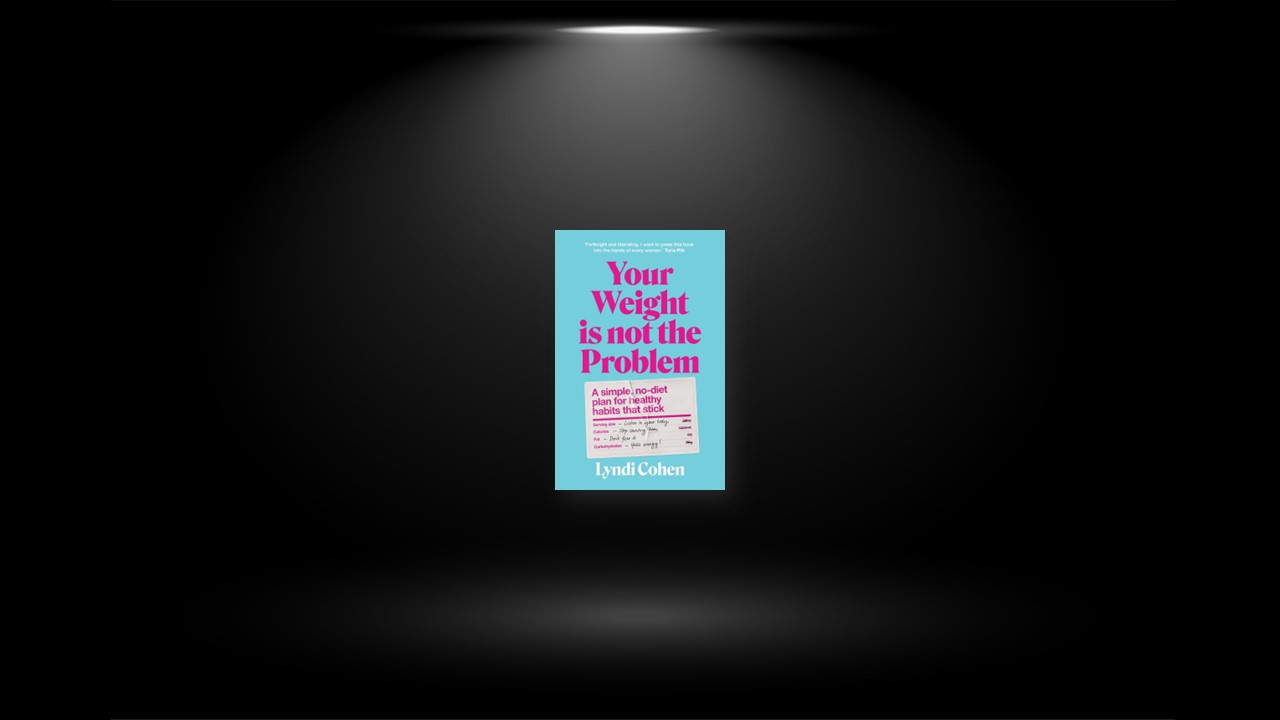DITCHING DIET RULES
* Dieting is seriously bad for your health. Statistically, dieting leads to weight gain, not weight loss. It leads to increased cravings and food obsession, makes you desire more food, and is awful for your self-worth. * Many seriously wonderful people are accidentally dieting by subscribing to a long list of diet rules. Diet rules make healthy eating and consistent exercise harder. * Becoming aware of your diet rules is a crucial step to creating a healthy relationship with food. Once you’re aware of your diet rules, you can begin to challenge them one by one, so that they lose power of you. * One strategy to do this is to use logic and rational thinking to challenge the idea that your food beliefs are ‘fact’. Another strategy is to challenge yourself to go against what the diet rule tells you, thus helping to form a new behaviour.
HEALTH-KICK HIGHS AND THE HEALTH PENDULUM
* You’re not imagining it. Each dieting attempt is becoming less effective due to diet burnout. The only way to recover from diet burnout is to stop dieting. * There are many ways to be healthy. Letting go of dieting may enable you to be able to forge a new and better way forward. * Believing that willpower is the solution to help you get healthy and stay there sets you up for all-or-nothing living. This is the willpower fallacy. If you want to be more consistently healthy, you need to stop relying on willpower. * Overcompensating for eating more than we planned can lead the health pendulum to swing from very unhealthy to obsessively healthy. Finding balance is key to long-term health. * Food guilt fuels the health pendulum to swing to extremes. Breaking up with guilt by noticing when it happens and adjusting your self-talk is key.
WHAT REAL HEALTH LOOKS LIKE
* The BMI is an outdated and unscientific measurement that can’t assess your health. Nor can weighing yourself on a scale. * Stop trying to lose weight (which is poor source of motivation) and start aiming to be healthy instead. Focusing on weight loss may lead to health pendulum swings and can make it challenging to adopt healthy habits that actually stick around. * True health is where your hormones are balanced, your body is strong and your mood is stable. Your goal weight is the weight where you fall asleep easily, you have boundless energy and your mind is free to think about things other than macros, calories or reps at the gym. * Maybe the reason you can’t lose the last few kilos is because you’re not supposed to. You may already be at a weight where your body feels comfortable. When you try to undercut your body’s preferred weight, it may fight against you. * You can’t hate yourself into a version of yourself that you love.
HYDRATION
* Quality sleep is a basic need and so is hydration. * We are Generation Burnout. Instead of giving us more time to relax, social media and our devices eat up our freedom. * Sort out your sleep with good sleep hygiene habits, which means your cat not your phone sleeps next to you * Dehydration can affect more than just your health; it can affect your mood and your energy as well.
CRAVINGS
* You’re probably not addicted to food. Depriving yourself of your favourite foods can increase cravings. * Giving yourself permission to eat these foods, ‘normalising’ them, may help you feel more relaxed around food in general. * The survival switch can get flipped on by dieting, or even just thinking about going on a diet. This is a protective mechanism. * To turn off the survival switch, you need to help your body know and trust that food is plentiful and always allowed. You can eat as much as you need to feel full. Choosing satisfying foods will help. Reminding yourself that you can always have more when you want to eat again can help (but you really have to mean it)! * Cravings are common and normal.
ENERGY MANAGEMENT REVIEW
* Rest and self-care can help to reduce your stress, helping you feel better in your body and yourself. This is why it’s a core habit within the hierarchy. * Rest isn’t watching TV while writing to-do lists or scrolling on social media. Prioritise real rest, whatever that means for you. * Practise being forgiving and kind to yourself. You don’t have to love yourself. Being kind is the act; the result is loving yourself. * We chase self-improvement because we don’t feel good enough as we are. If we accepted ourselves a little more, perhaps we’d finally stop feeling like we’re chasing an unattainable goal. * Choose to forgive yourself for being imperfect. You may find more connection with others when you’re willing to turn up as your perfectly flawed, human self. There is no shame in having a mental illness. Make an appointment with a psychologist or mental health-care professional. * Accepting that being disliked is inevitable can free you up to choose what you REALLY want to do instead of living your life for other people.
COOKING MORE AT HOME
* Enjoyable movement isn’t punishing or gruelling. It’s about active living, finding fun and joyful ways to move your wonderful body. * Moving your body may be key for your mental health, allowing time for the big think. There are many benefits, including better mental health, more consistency and thus more energy, when you stop thinking exercise and movement is about burning calories. * Cooking at home more is a core habit. And it doesn’t need to be done perfectly either. People who cook at home tend to eat healthier (and save money) so maybe try doing it one or three more nights a week. * Make abundant, great-tasting salads instead of sad boring bowls. Healthy food shouldn’t feel like a compromise. Ditch the idea that all food must be ‘clean’ or perfect. If adding more enjoyable ingredients, with some added calories, means you eat healthier, it’s a major win. * Create a healthy home environment that supports you. You might change the types of foods you buy for your home and give yourself permission to eat ice cream when out with friends as opposed to secretly eating it at home because it feels shameful to do in public. Try online shopping or reorganising your fridge.
THE RISE OF COSMETIC SURGERY
* Social media is an energy exchange, which may explain why you don’t feel rested when you use it as downtime. * Wellness wankery emerges based on a granule of truth, with misinformation built on top of it, making it hard for us to determine if it’s trustworthy or nonsense. * In the digital age, journalists are being asked to prioritise clicks over facts. * 75 per cent of women may experience disordered eating. This means that our journalists, doctors, health-care professionals, friends or family may not be immune to diet messaging. * Not sure if it’s wellness or wankery? Ask a health-care professional to confirm. * Cosmetic surgery is on the rise, at an exceedingly fast pace. Combined with social media filters, what you see on social media isn’t a reflection of what people really look like. * Addressing poor body image and disordered eating before considering cosmetic surgery is a really important thing to do.
WHY YOU HAVE NOTHING TO WEAR
* You don’t need to love your body. But can you choose to show it respect, or view it neutrally, accepting it will always be imperfect? * You don’t have to look perfect from every angle. In some photos you’ll look fabulous, while other times you’ll look like a pudding. This isn’t a reflection of your self-worth, because being pretty or thin is the least impressive thing you can do. * Managing bad body image days starts with recognising the thought patterns. Poor body image is a feeling, not a factual assessment. Consider what triggered the feeling, and do something proactive that can help you move through it. * Grow unconditional confidence, not flaky confidence that depends on compliments from others or your weight. * Change your clothes to fit your body, don’t change your body to fit your clothes. Your wardrobe can either support you to feel good in your body or get in the way of your wellbeing. Changing your relationship with clothes may help shift your relationship with your body.


